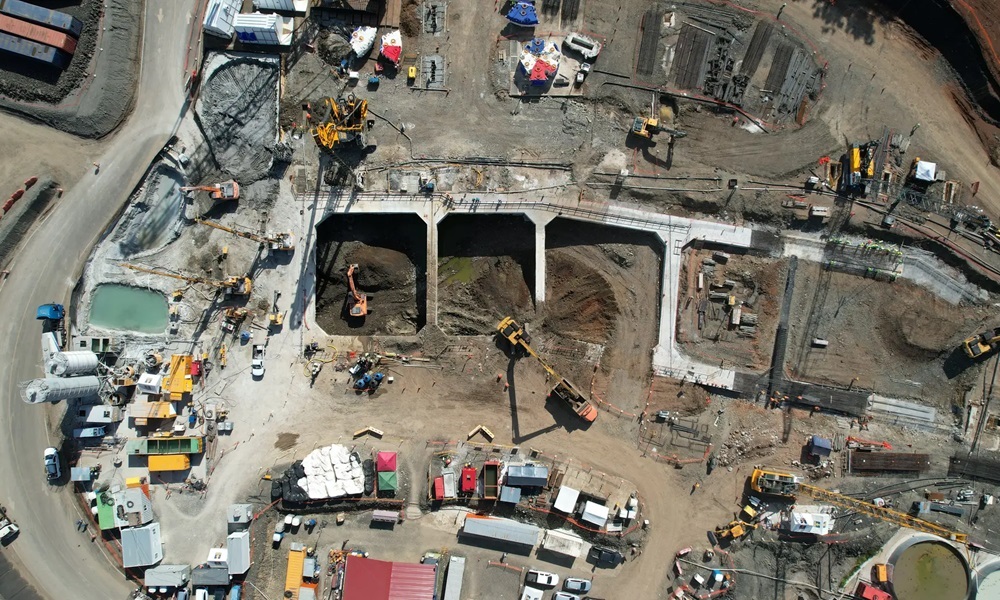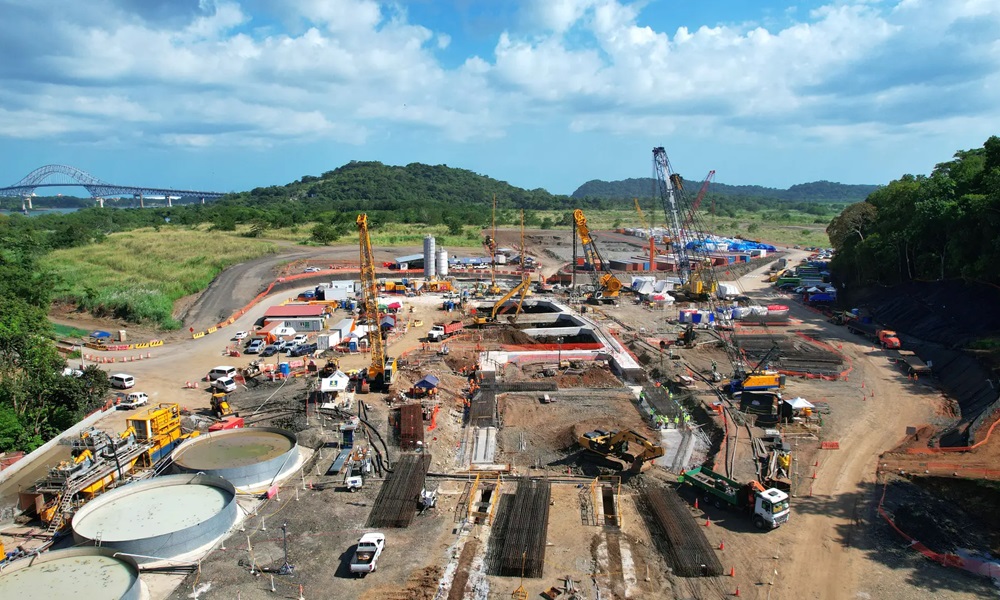Metro Line 3 in Panama is setting new standards for public infrastructure projects in Latin America. And that’s not only because this project is the largest construction project since the expansion of the Panama Canal.
After commissioning of the new line, planned for 2026, traffic congestion in the city should be reduced significantly.
At the same time, the population will have access to fast, efficient and sustainable public transportation that will offer considerably shorter travel times than before.
Both of these factors mean enormous gains in quality of life for the region’s residents.
The new 34 km railway between the stations of Albrook and Ciudad del Futuro is predominantly designed as an above-ground monorail. However, a 6 km section that crosses the Panama Canal will run underground. A tunnel boring machine is being used to construct the required tunnel for this section. But before the machine can start its work, a starter shaft is needed first. The HPH joint venture – comprising Hyundai Engineering & Construction, Posco and Hyundai Engineering Co., Ltd. – tasked BAUER Fundaciones Panama S.A., a subsidiary of BAUER Spezialtiefbau GmbH, with the diaphragm wall work. The scope of service also included installing barrettes along with jet grouting work.

Bauer’s work on this section of project began in July 2023 and is planned to continue until October 2024. The work is divided into two phases: In the first phase, which has already been completed, Bauer constructed 4,837 m3 of diaphragm wall for the starter shaft.
“In the second phase, which is currently underway, the elevated railway section will be connected with the underground section using the cut and cover method. An additional 12,000 m3 of diaphragm wall still need to be constructed for this phase,” explains Alejandro de la Rosa, Project Manager at Bauer Panama. For both work phases, the equipment in use included two MC duty-cycle crane and two BC cutter units from Bauer Maschinen, several KR rigs from KLEMM Bohrtechnik GmbH as well as a BE 500 plant from BAUER MAT Slurry Handling Systems.
“Good planning and organization, as always, are crucial for success,” emphasizes Alejandro de la Rosa. The biggest challenges were the tight schedule and tough soil conditions. Cutting work in stone with strengths of up to 195 MPa was particularly difficult. In some cases, the diaphragm walls were also embedded up to a depth of 15 m in weathered and solid rock. To categorise the rock classes, 57 drillings were carried out in advance.
The project manager proudly reports: “Thanks to a fantastic team and excellent effort, we have been able to manage these challenges without a problem. We are currently running on time and are optimistic that we will be able to finish the work according to schedule.”
